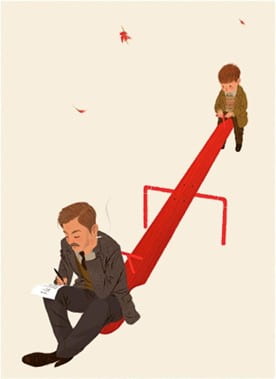By Daniella Razzouk | Staff Writer
When discussing the suffering caused by the patriarchal nature of Arab societies, the focus is often on its effect on women and girls. This is only natural as women and girls are the ones being oppressed by this system. However, it is important to point out that while men are not oppressed by patriarchal systems, and in some cases, are benefitting from it, it also causes them suffering. The most prominently discussed form of suffering is the effect of the patriarchy on men’s ability to express their emotions, often sloganized as “men don’t cry”. This mentality has had devastating effects on men’s lives, leading to a noticeably higher suicide rate among men relative to women, as well as an increase in mental health disorders paired when a rejection of professional psychological help.
However, another form of suffering can be seen in the role that the patriarchy assigns to men within the household. While women are tasked with all the household chores and child caring, men are tasked with being the main, or sometimes sole, breadwinners for their families. If a man fails at this role, due to unemployment or even being out-earned by his wife, he risks being viewed as less of a man. This suffering is two-fold. Firstly, by pressuring men to be the sole providers in an economic situation that has made it nearly impossible to rely on a single income, we place in men the implicit belief that their worth is conditional and tied to their ability to earn, as opposed to being innate. This is not to say that women are privileged in this dynamic, as their placement exclusively within the private sphere leads to oppression due to the difficulty of obtaining financial independence. Yet, by allocating the public sphere exclusively to men and the private sphere exclusively to women, we create an environment in which both individuals are nearly incapable of fulfilling their assigned roles. However, this particular form of suffering is felt more acutely by men who, as previously stated, are more inclined to view their worth as being conditional.
The second form of suffering is seen in a man’s relationship with his children. Childcare, especially when the child is very young, is often relegated by default to the mother with the father’s role diminished to a glorified ATM machine. A common stereotype of the Arab father is of an emotionally distant, or even uncaring, man who does not concern himself with his children’s well-being or day-to-day life and is instead satisfied with simply funding it. This view of the father is not only cruel but harmful to every member of the family. The father suffers as he is made to feel as though his role in the life of his children is limited, and the mother suffers as she is forced to fulfill all of the needs of her children often at the expense of her career or personal goals, and children suffer as they are denied a healthy and emotionally fulfilling relationship with their father.
In conclusion, while the patriarchy is often made to appear as some kind of “woman’s issue”, a deeper look will make it clear that patriarchal systems hurt everyone. It is due to patriarchy that men are made to feel unloved if they cannot provide. It is due to patriarchy that women are forced to take on more domestic work than can be expected of any individual. It is due to patriarchy that children may view their fathers as distant and uncaring, only ever speaking to them to ask the age-old question: “Baba, can I have some money?”.

